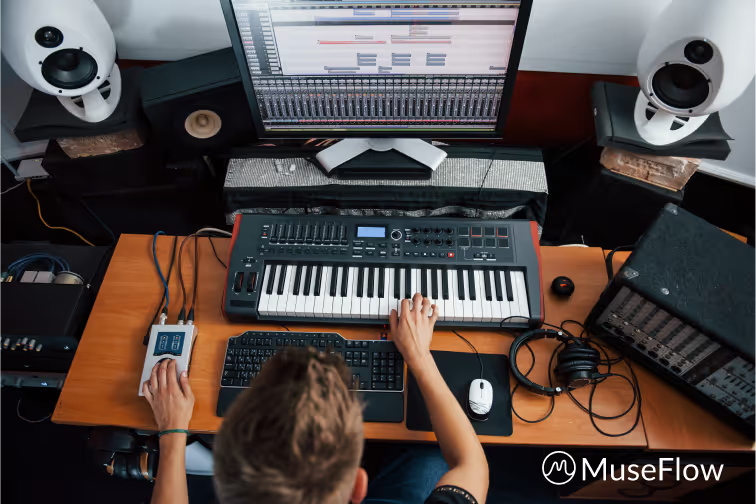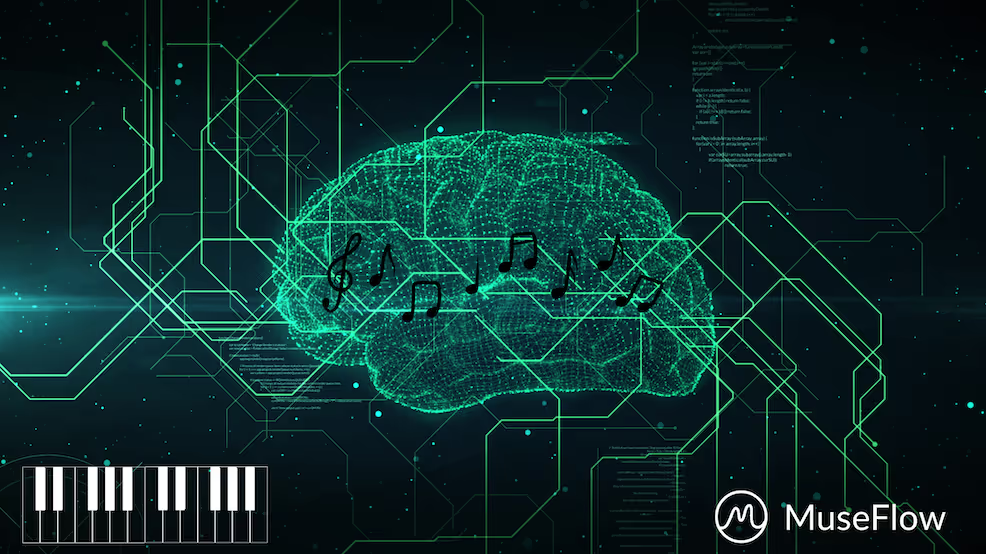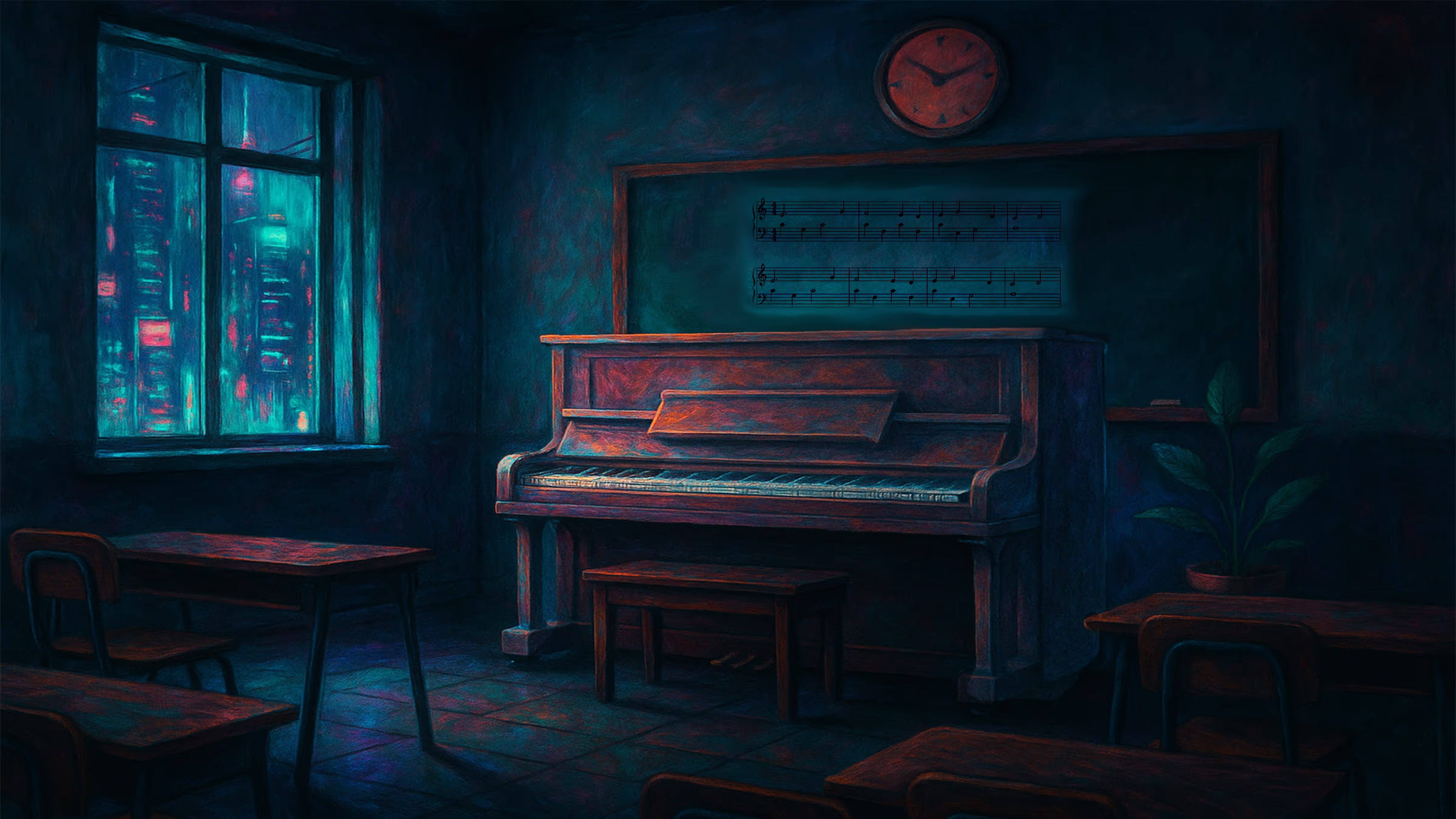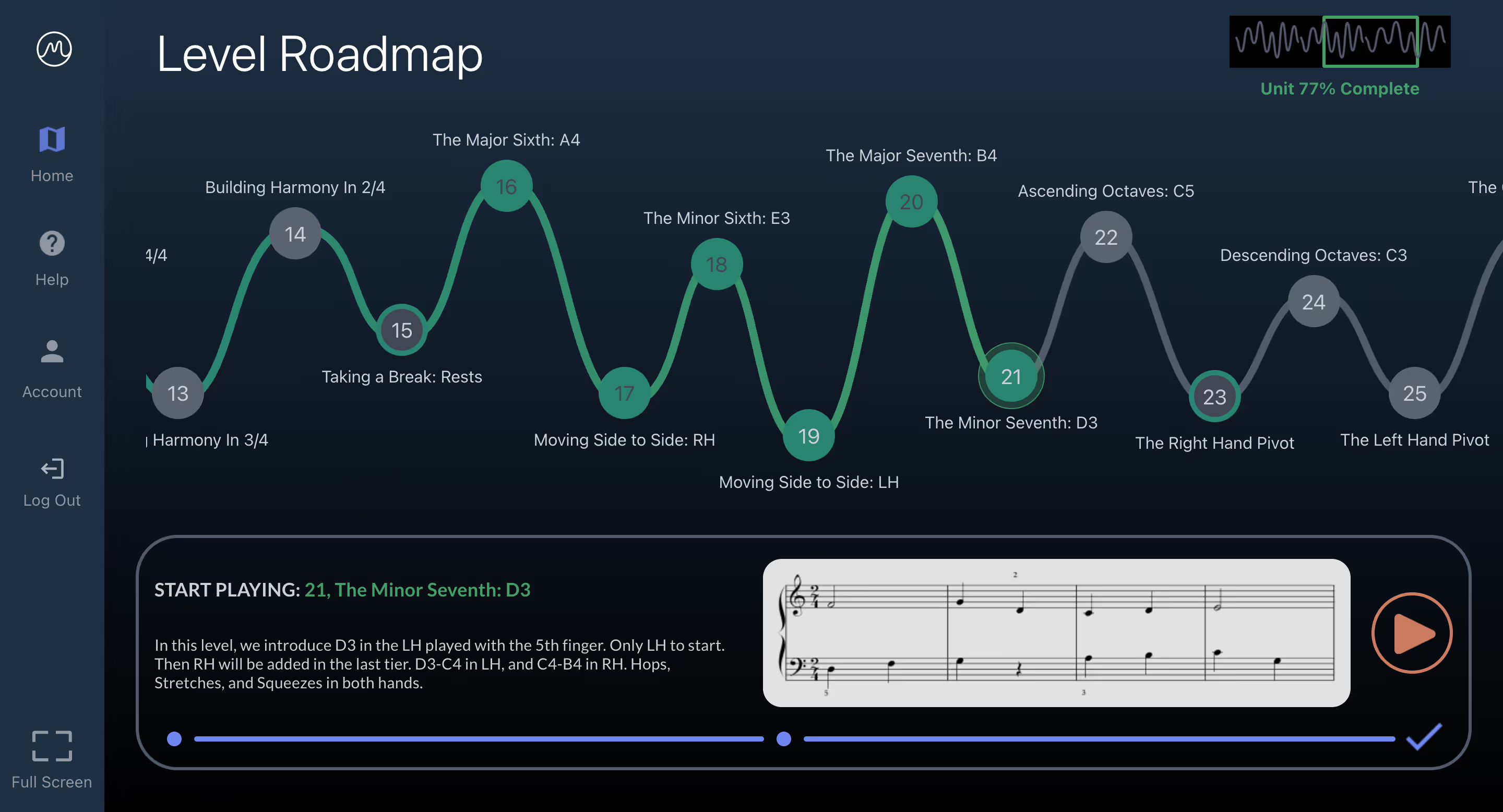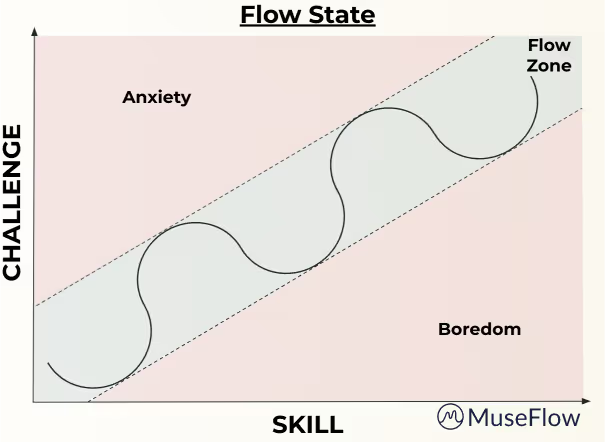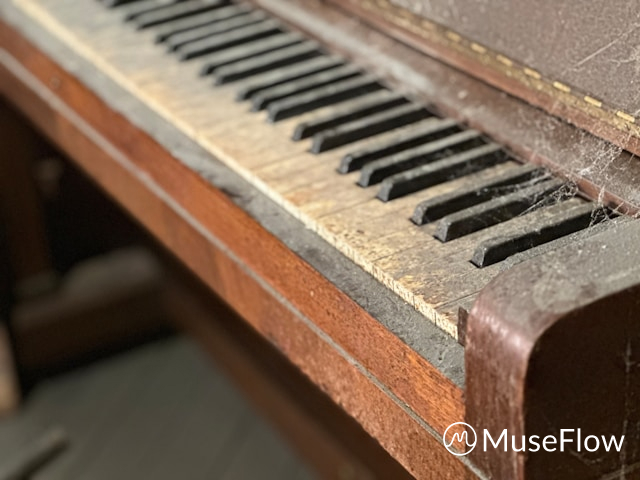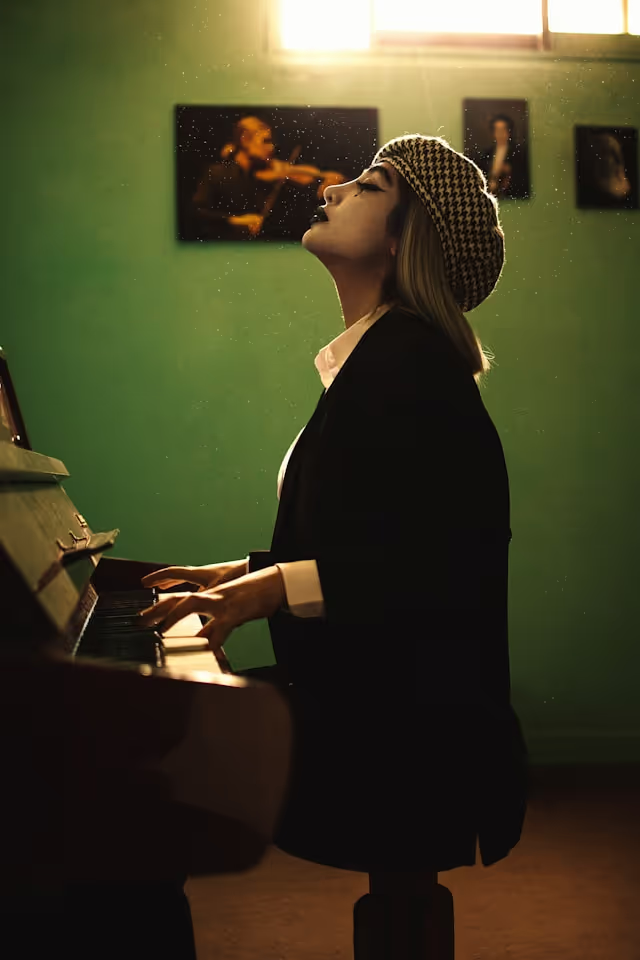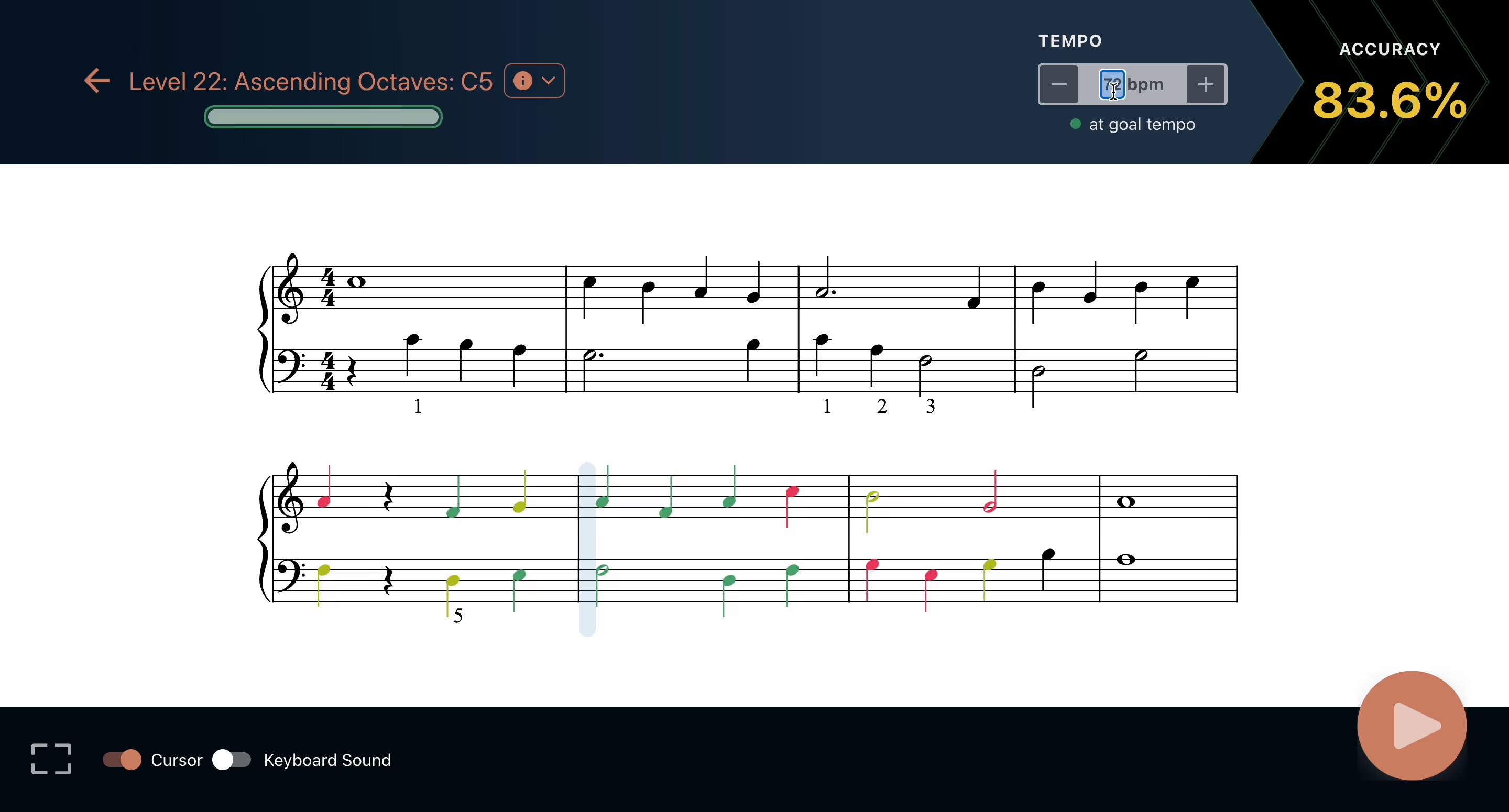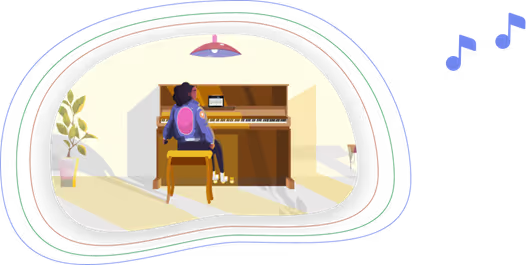The Best Piano Learning App in 2025:5 Reasons Why MuseFlow Leads the Way
Are you looking to learn piano in a fun, engaging, and effective way? Then you have found the perfect solution! In 2025, the best piano learning app is MuseFlow. This innovative app combines technology with a very deep understanding of musical education like no other. Below are 5 quick reasons why MuseFlow is the best software for learning piano this year.
Try MuseFlow for Free Right Now
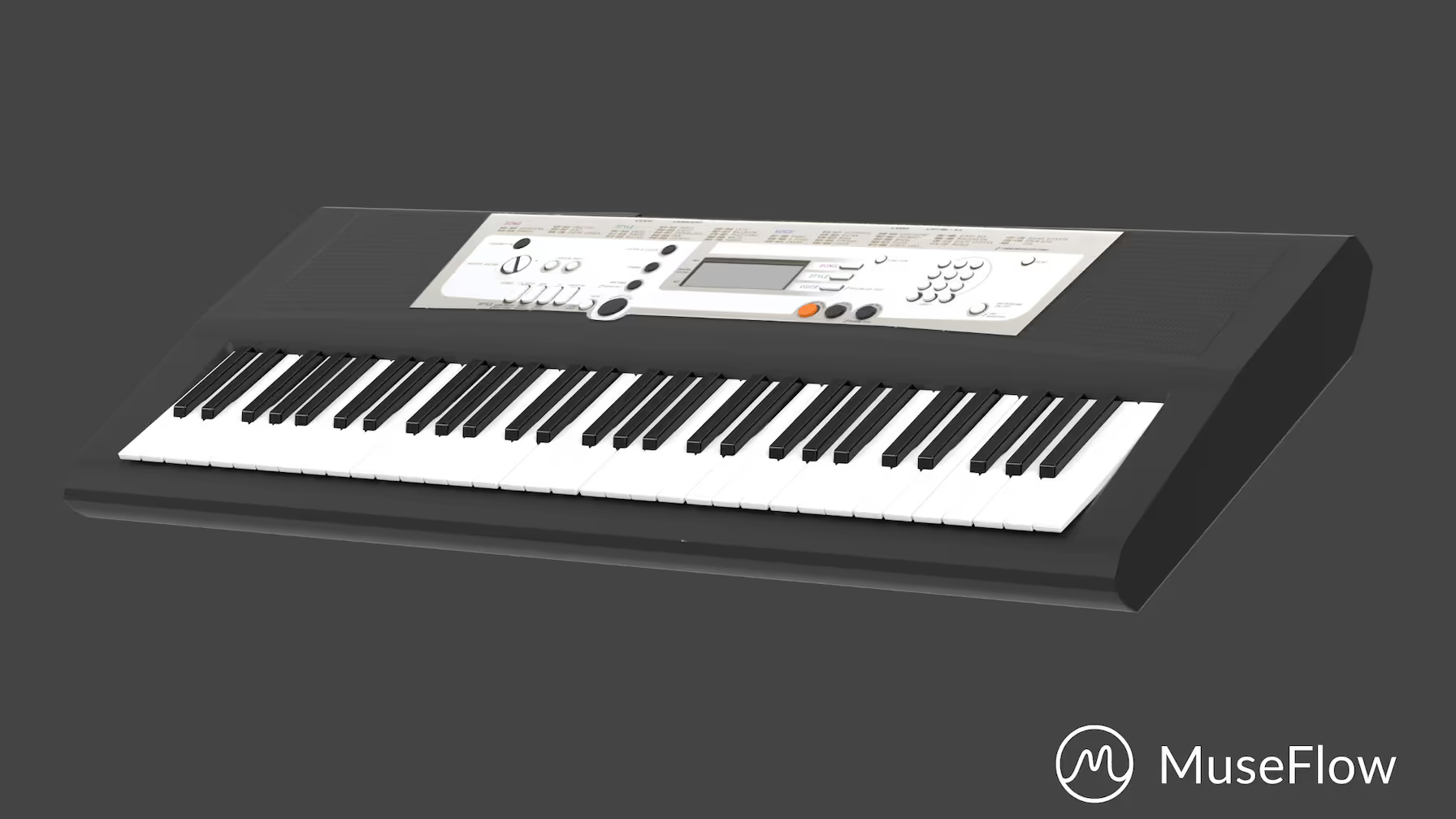
1. The Prospects of AI-Driven Personalization
The California based company stands out due to its interest in adding in AI-personalization to your music education. MuseFlow will soon be able to tailor each lesson to your specific skill level. Currently you can choose where to start in MuseFlow, but later it will place you, and adjust the music dynamically to how you are playing.
Traditional piano lessons often follow a one-size-fits-all approach, which can often leave students feeling frustrated or bored. The team at MuseFlow is currently building and training sophisticated algorithms that will continuously adapt to your unique progress. Whether you’re just a beginner or an advanced player, the technology will make sure that each lesson is perfectly suited to your current abilities. This will keep you challenged and engaged, and also won't leave you frustrated.

2. Gamified Learning Experience
One of the most unique aspects of MuseFlow is its gamified learning experience. The piano app transforms the process of learning piano into a fun game! This means each new rhythm and note you learn is a level you need to pass. Unlike other outdated apps that rely on superficial stars and badges, here the gamification is deeply integrated into its teaching method. This could not be done by a human teaching you piano lessons... Every note you play counts towards your overall score - with real-time feedback that shows your accuracy and tempo. This new engaging approach makes practice sessions feel like a lot of fun & like a rewarding challenge rather than an annoying chore!


3. Immersive & Beautiful Design
Learning an instrument should be an enjoyable experience. MuseFlow's design really reflects that. The app has an immersive &visually appealing interface that makes practicing a pleasure and fun. Unlike other apps with outdated and often complex designs, the best piano app on the market has an interface that is both beautiful and user-friendly. The carefully curated colors, icons, and layout are designed to be easy on the eyes. This is actually really important to staying on the app and enjoying to learn to play piano!! It allows you to focus on your playing without distractions. This attention to detail in the design enhances the overall learning experience, making it more enjoyable for you..just look at the screenshot below.
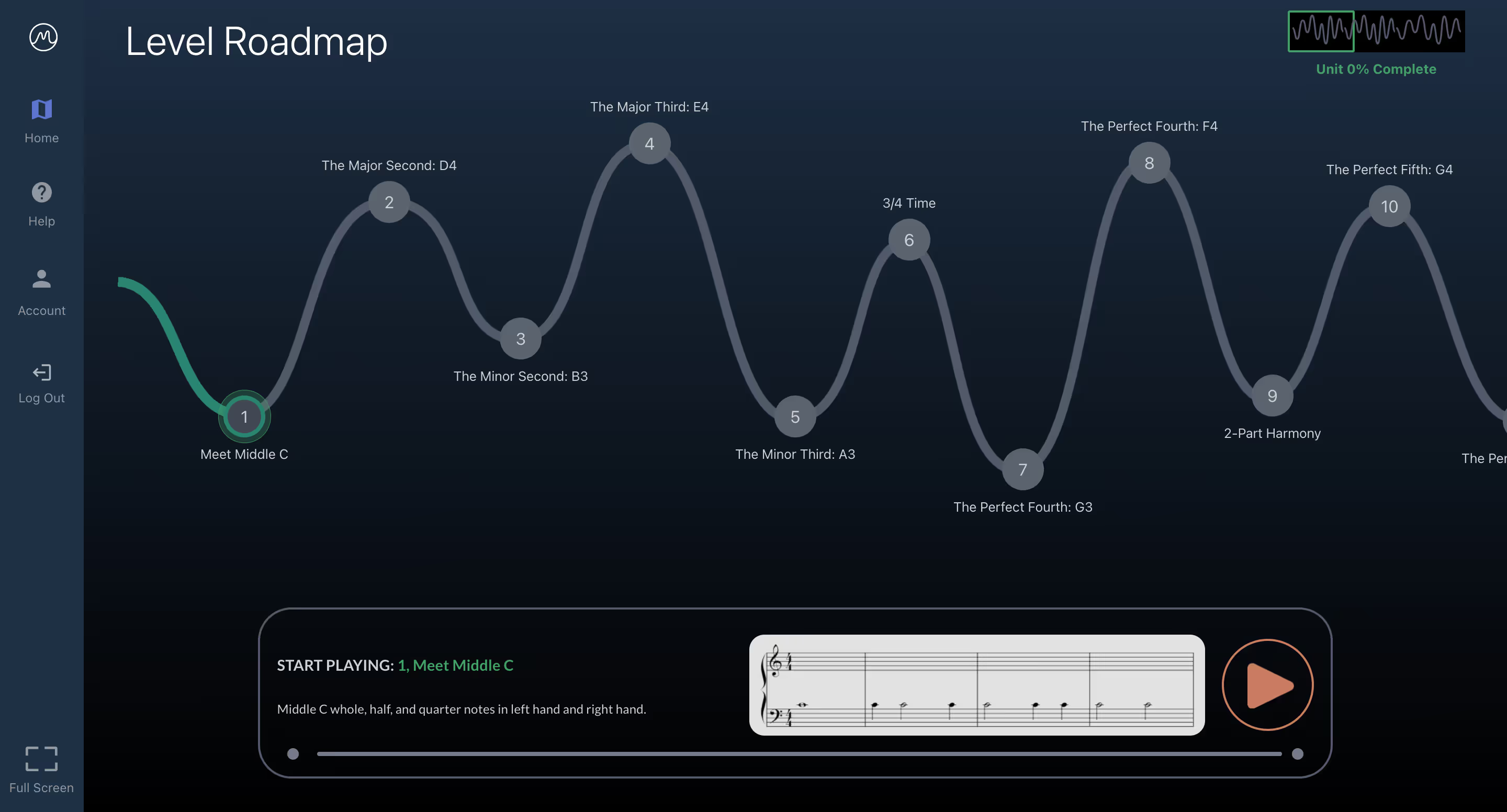
4. Focus on Sight Reading
MuseFlow prioritizes sight reading. This is a crucial skill for any pianist. Sight reading is the ability to read & play music at first sight - representing the "floor" of your musical ability. Many traditional teaching methods focus heavily on the "ceiling" of a student's ability - what they can achieve with extensive practice. This AI Piano learning app emphasizes improving your sight reading skills. It really allows you to reach true musical fluency faster. By mastering sight reading, you can quickly progress to playing songs with greater musicality & expression.It makes the learning process more enjoyable and less frustrating...
Another great bonus of the software is that is has an innovative way to generate an infinite amount of new music at YOUR level. This means you will always have fresh material to practice, ensuring that your skills continue to improve without the monotony of repeating the same exercises. This is huge, because all other apps only have the same material you can practice.
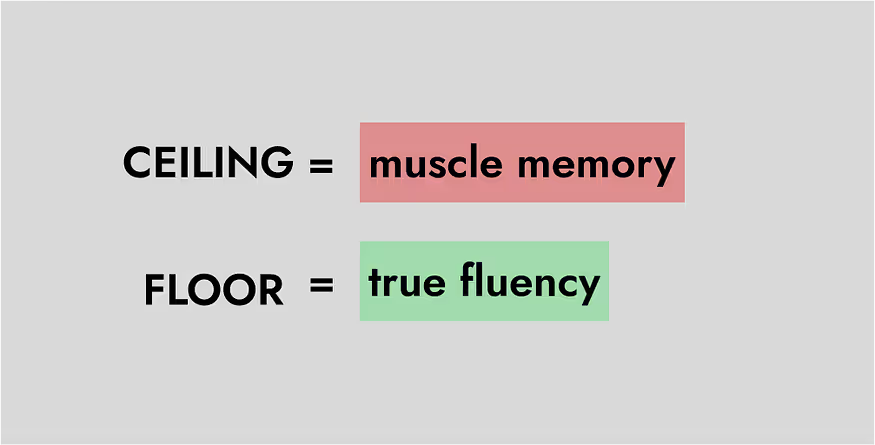

5. Comprehensive Learning Tools for Your Musical Education
This new app is not just about playing notes.. it offers a comprehensive suite of tools to enhance your musical education. What does that mean? Well, the app includes tutorials before each level to really make sure that you understand the key concepts & techniques. Real-time feedback from pattern recognition algorithms helps you identify and correct mistakes instantly. This helps you learn faster. Moreover, MuseFlow is continuously expanding its features, with plans to introduce advanced curriculum options, AI pattern recognition for deeper insights, and new practice modes for ear training, chord and scale exercises, and rhythm drills.
The software will soon feature a repertoire library where you can apply your sight reading skills to your favorite songs, and a music theory section with personalized exercises to expand your knowledge.
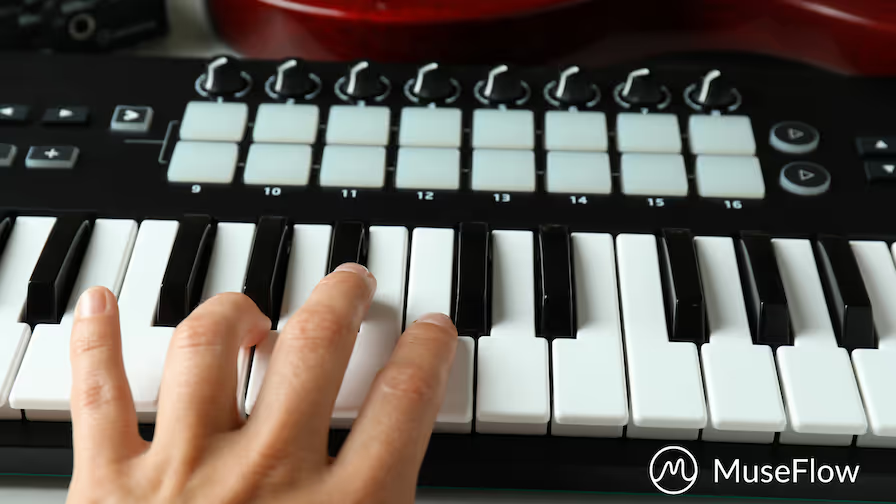
Conclusion
In 2025, MuseFlow is the best piano learning app available for many reasons! It offers you a chance to join a product that is focused on building the perfect AI-driven personalization algorithms for music education, currently has smart gamified learning, immersive design, helps you focus on sight reading, and offers comprehensive learning analytics to guarantee enjoyment and success. By combining (and currently building) these unique elements, the app provides you with a fun, engaging, and highly effective way to learn piano. The best part is, whether you’re a beginner looking to start your musical journey or an experienced player trying to refine your skills, MuseFlow is your best friend to help you achieve your musical goals.

.svg)

.avif)
